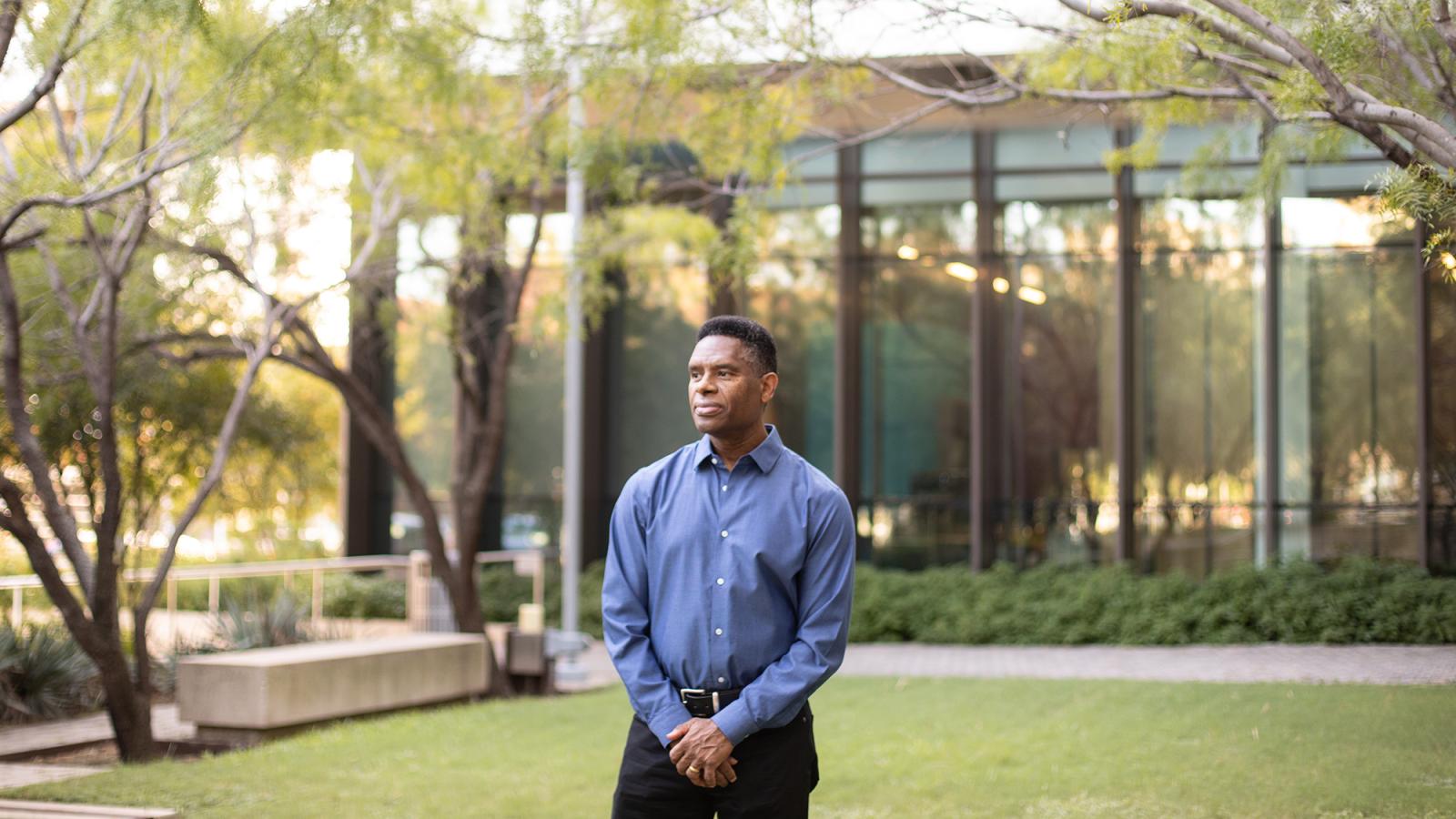Artificial intelligence and the future of work
S. Craig Watkins, professor in the School of Journalism and Media, as well as a researcher and designer in diverse media technologies, joined other University of Texas at Austin faculty for a timely conversation on Wednesday, Sept. 22. "The Future of Work: It's a Brave New World" explored how organizations can forge new paths.
Watkins, along with experts from the McCombs School of Business and LBJ School of Public Affairs, discussed their research and projections for managing key work issues and challenges, such as:
- What is the future of the corporate office?
- How will flexible work shape our cities and the real estate market?
- How will technology continue to transform our work models and daily patterns?
- How has the pandemic changed workforce structure?
Watkins specifically considers artificial intelligence or A.I., a series of algorithmic and computational processes that allow decisions to be automated, or systemize what might otherwise be a human form of task-solving.
"As machines become much more capable of doing a wider range of human tasks, many are raising the question, 'What does it mean for the future of work?'" Watkins said.

Q&A
What does machine labor look like?
We've long known that machines perform what we might call manual labor. Think about an automobile factory, and the manufacturing of cars, and the ways in which robots are now a significant part of the assembly line process.
If you go into other industrial factory contexts, you'll see machines are becoming more and more capable of performing the work that humans used to do.
But what's happening over the last 10 years or so, and this is only accelerating, is that the machines are not only able to perform what we might call manual labor, but they are also able to perform cognitive labor. And so, we're seeing this in the medical field. We're seeing this in the legal field. We're seeing it in the financial field.
What is an example of machine labor actually applied?
In the financial sector, as one example, a lot of the financial reports are now being written by algorithms, because they're largely very technical reports. They rely, essentially, on an analysis of financial data sets.
And so, the belief is that you can basically build these automated systems that can process financial data much more quickly -- larger batches of significantly larger batches of data. A lot of financial companies are relying on that kind of technology to produce records.
What should we think about moving forward?
The main point being here is that there is a growing recognition that A.I. is going to have a significant impact on the future of work. And so that has some real ethical consequences for how we think about our economy and how we think about economic inequality.
